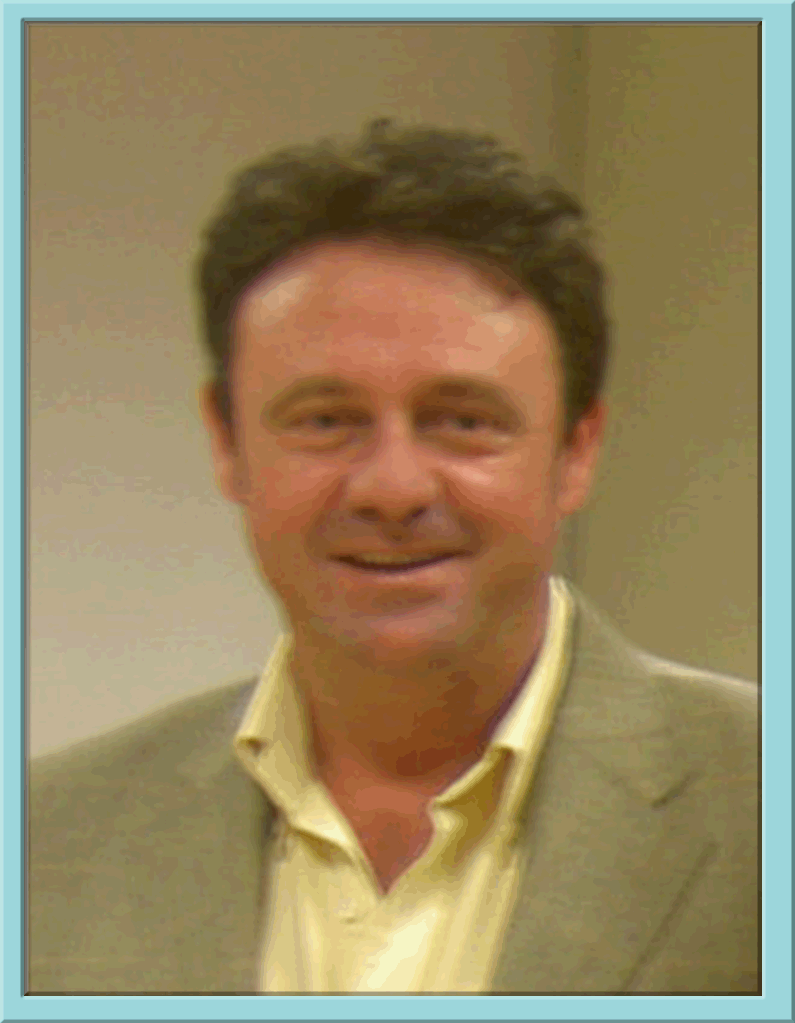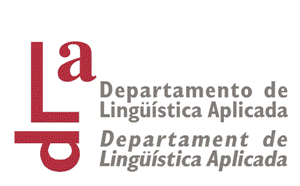Keynote speakers
[in alphabetical order]

|
Francisco Alonso (Universidad de Las Palmas de Gran Canaria) He is a Professor at the Universidad de Las Palmas de Gran Canaria. His research interests concern the following fields: English medical discourse; changing patterns, charms and prognostication, astrology (basically medieval), women and witchcraft (medieval and renaissance), historical pragmatics and sociolinguistics, (historical) discourse analysis, dialectal analysis of English texts, editing and palaeography, corpus linguistics, genre analysis, the study of stance and evidentiality in research academic papers. Lecture: Inferentiality and modals. Gender, genre and disciplinary variation in Modern English scientific writing Modal verbs present a wide arrange of meanings according to context. These are frequently indexical of the author’s position concerning their texts. The meaning I would like to revise here is inferentiality in academic writing, as the deductive process is a characteristic of this type of writing. For this, I would analyze The Coruña Corpus of Early Scientific Writing (1700-1900) from where I excerpt examples of modal verbs indicating inferential meaning (also labelled as epistemic necessity). Conclusions will report on gender, genre and disciplinary variation concerning the use of modals entailing inferentiality in this compilation. |

|
Antonio Briz (Universitat de València) Antonio Briz es Catedrático de Lengua española en el Departameto de Filología española en la Universidad de Valencia y director del grupo de investigación Val.Es.Co. (http://www.valesco.es), dedicado al estudio de la lengua hablada y a la lingüística de corpus. Trabaja en lingüística española y en pragmática del español, y su línea de investigación principal es el estudio y análisis de la conversación coloquial. Sus últimas publicaciones tratan temas relacionados con las unidades de la conversación, los marcadores del discurso y la cortesía verbal. Dirige actualmente un proyecto interuniversitario, titulado Diccionario de partículas discursivas del español (www.dpde.es), financiado por la Fundación Comillas, un estudio sobre la cortesía atenuadora en España y América, así como un proyecto de modernización del lenguaje jurídico en España. Lecture: La atenuación lingüística en corpus académicos Tras los estudios que hemos realizados sobre la atenuación en géneros conversacionales coloquiales (Briz, 1995, 2007, 2011, 2013; Briz y Albelda, 2013; Albelda y otros, 2014), nos interesa ahora observar el funcionamiento de esta actividad atenuadora en géneros representativos, en general, de la escala de lo formal como son los académicos. Entendemos la atenuación como una actividad argumentativa (retórica) estratégica de minimización de la fuerza ilocutiva y del papel de los participantes en la enunciación para lograr llegar con éxito a la meta prevista. Unas veces habrá atenuación de hablante y, por tanto, la estrategia tendrá un carácter más monológico; otras, atenuación de hablante y oyente y, por tanto, tendrá un carácter más dialógico y a menudo cortés. La hipótesis de partida es que la atenuación se asocia a contextos situacionales de menos inmediatez (menos formalidad) o que requieren o se desea presenten menos inmediatez comunicativa. Si esta hipótesis de partida es cierta, es de suponer que la presencia de atenuantes será una constante lingüística en los géneros académicos y, por tanto, los corpus académicos serán una fuente de datos importante para el estudio de esta actividad atenuadora. En su análisis habrá que determinar la función y la forma de atenuar, las cuales irán asociadas al contexto interactivo propio y general (CIG) del discurso académico (teniendo en cuenta que este puede variar según tradiciones textuales y culturales) y, sobre todo, a los contextos interactivos concretos (CIC), es decir, a cada uno de los momentos o partes que lo constituyen (por ejemplo, el tipo de atenuación que puede aparecer en una tesis doctoral puede variar según dicha actividad se dé en el título, la introducción, la discusión y valoración de los trabajos de otros, el análisis o en las conclusiones). |

|
Ruslan Mitkov (University of Wolverhampton) Prof. Dr Ruslan Mitkov has been working in Natural Language Processing (NLP), Computational Linguistics, Corpus Linguistics, Machine Translation, Translation Technology and related areas since the early 1980s. Whereas Prof. Mitkov is best known for his seminal contributions to the areas of anaphora resolution and automatic generation of multiple-choice tests, his extensively cited research (more than 240 publications including 14 books, 35 journal articles and 36 book chapters) also covers topics such as machine translation, translation memory and translation technology in general, bilingual term extraction, automatic identification of cognates and false friends, natural language generation, automatic summarisation, computer-aided language processing, centering, evaluation, corpus annotation, NLP-driven corpus-based study of translation universals, text simplification, NLP for people with language disabilities and computational phraseology. Mitkov is author of the monograph Anaphora resolution (Longman) and Editor of the most successful Oxford University Press Handbook - The Oxford Handbook of Computational Linguistics. Current prestigious projects include his role as Executive Editor of the Journal of Natural Language Engineering published by Cambridge University Press and Editor-in-Chief of the Natural Language Processing book series of John Benjamins publishers. Dr. Mitkov is also working on the forthcoming Oxford Dictionary of Computational Linguistics (Oxford University Press, co-authored with Patrick Hanks) and the forthcoming second, substantially revised edition of the Oxford Handbook of Computational Linguistics. Prof. Mitkov has been invited as a keynote speaker at a number of international conferences including conferences on translation and translation technology. He has acted as Programme Chair of various international conferences on Natural Language Processing (NLP), Machine Translation, Translation Technology, Translation Studies, Corpus Linguistics and Anaphora Resolution. He is asked on a regular basis to review for leading international funding bodies and organisations and to act as a referee for applications for Professorships both in North America and Europe. Ruslan Mitkov is regularly asked to review for leading journals, publishers and conferences and serve as a member of Programme Committees or Editorial Boards. Prof. Mitkov has been an external examiner of many doctoral theses and curricula in the UK and abroad, including Master’s programmes related to NLP, Translation and Translation Technology. Dr. Mitkov has considerable external funding to his credit (more than 20,000,000 euros) and is currently acting as Principal Investigator of several large projects, some of which are funded by UK research councils, by the EC as well as by companies and users from the UK and USA. Ruslan Mitkov received his MSc from the Humboldt University in Berlin, his PhD from the Technical University in Dresden and worked as a Research Professor at the Institute of Mathematics, Bulgarian Academy of Sciences, Sofia. Mitkov is Professor of Computational Linguistics and Language Engineering at the University of Wolverhampton which he joined in 1995 and where he set up the Research Group in Computational Linguistics. His Research Group has emerged as an internationally leading unit in applied Natural Language Processing and members of the group have won awards in different NLP/shared-task competitions. In addition to being Head of the Research Group in Computational Linguistics, Prof. Mitkov is also Director of the Research Institute in Information and Language Processing. The Research Institute consists of the Research Group in Computational Linguistics and the Research Group in Statistical Cybermetrics, which is another top performer internationally. Ruslan Mitkov is Vice President of ASLING, an international Association for promoting Language Technology. Dr. Mitkov is a Fellow of the Alexander von Humboldt Foundation, Germany and was invited as Distinguished Visiting Professor at the University of Franche-Comté in Besançon, France; he also serves as Vice-Chair for the prestigious EC funding programme ‘Future and Emerging Technologies’. In recognition of his outstanding professional/research achievements, Prof. Mitkov was awarded the title of Doctor Honoris Causa at Plovdiv University in November 2011. At the end of October 2014 Dr. Mitkov was also conferred Professor Honoris Causa at Veliko Tarnovo University. Lecture: The name of the game is comparable corpora Comparable corpora are the most versatile and valuable resource for multilingual Natural Language Processing. The speaker will argue that comparable corpora can support a wider range of applications than has been demonstrated so far in the state of the art. The talk will present completed and ongoing work conducted by the speaker and colleagues from his research group where comparable corpora are employed for different tasks including but not limited to the identification of cognates and false friends, validation of translation universals, language change and translation of multiword expressions. The presentation will conclude with the results of an interesting experiment as part of this study which sought to establish whether large loosely comparable data would yield better results than smaller but strictly comparable corpora. |

|
Paul Rayson (Lancaster University) He is director of the UCREL research centre and a Reader in the School of Computing and Communications at Lancaster University, UK. A long term focus of his work is the application of semantic-based NLP in extreme circumstances where language is noisy e.g. in historical, learner, speech, email, txt and other CMC varieties. His applied research is in the areas of dementia detection, online child protection, cyber security, learner dictionaries, and text mining of historical corpora and annual financial reports. He is a co-investigator of the five-year ESRC Centre for Corpus Approaches to Social Science (CASS), which is designed to bring the corpus approach to bear on a range of social sciences. He is also a member of the multidisciplinary centre Security Lancaster, Lancaster Digital Humanities, and the Data Science Institute. Lecture: Don't just look at the words: semantic annotation tools for the analysis of academic discourse Although the field of corpus linguistics has been around for a number of decades, we are still mainly employing methods restricted to the analysis of the surface word forms appearing in our corpora. Many different corpus retrieval tools exist but they are largely utilising only the same four or five core methods (frequency lists, keyness, concordances, collocation and n-grams). Reference corpora are widely available for English but not so for many other languages. All of these factors limit the scope of potential studies, and so corpus linguistics has become very much a tool-driven discipline. In my 2008 IJCL paper, I proposed the key domains method linking the key words approach with the USAS semantic tagging method from the computer science sub-field of Natural Language Processing (NLP). This combination of methods has many advantages, not least the ability to analyse words with their contextually appropriate word class (POS) and coarse-grained semantic field, as well as highlighting key concepts and other linguistic features within a corpus which would otherwise not be found via the keywords approach alone. Other combinations can be made with corpus methods such as semantic collocations. In this talk, I will describe recent work in the UCREL research centre at Lancaster University to extend our semantic analysis tool. First, we have extended the semantic analysis system to 10+ languages offering the potential for key domains studies in those languages. Second, we are extending the semantic taxonomy itself, both historically (which is not so relevant in the CAAD context) but also into specific academic sub-domains. This enables the automatic analysis of ever more fine-grained domain-specific semantic distinctions which are required for the analysis of academic discourse. As a case study, I will describe our research on the comparative analysis of sub-domains within the quickly expanding field of genomics based on large corpora of academic abstracts derived from PubMed. |

